Being a homesteader is a full-time job in itself. Taking care of your crops and livestock and making sure they aren’t a threat to each other can be demanding. If you find your goats, helping themselves to your tomato vines, what should you do? Can goats eat tomato plants anyway?
Ripe tomatoes in moderate amounts are not poisonous to goats. However, green parts of the tomato plants, including unripe tomatoes, stems, leaves, are toxic to goats. They contain alkaloids that can cause gastrointestinal distress in livestock & other animals.
Always keep an eye out on the area where your goats often graze. What plants are they feeding on, and whether they’re all safe for them or not? You need to know exactly how tomato plants affect goats and how you should keep your goats away from the vines if you want to keep your livestock healthy.
Are Tomato Plants Safe For Goats?
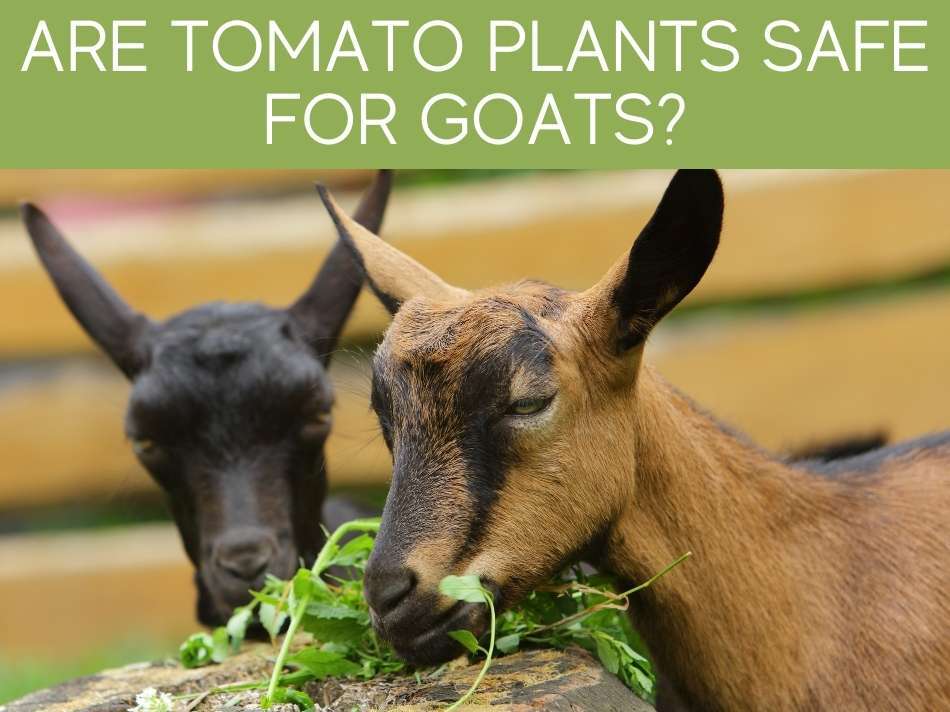
If you’re growing tomatoes in a garden that also hosts your pets, you should know that these plant varieties are poisonous. If you have particularly pesky pets – and goats have a reputation for being mischievous – this is something you should consider when choosing the crops you grow on the property.
By the way, since you’re growing tomatoes, you’ll want to check out our full article on how you can grow more tomatoes.
Tomatine – A Natural Defense For Tomato Plants
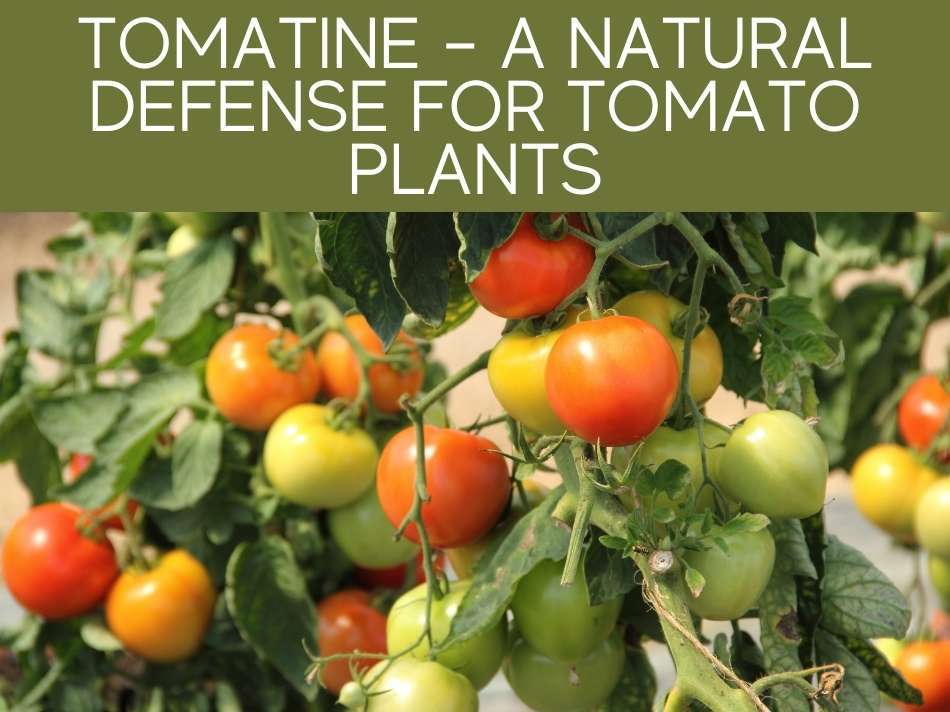
Tomatoes are members of the deadly nightshade family, Solanaceae. Just like all other nightshade plants, tomato plants also produce a toxin. While most other nightshades produce solanine, tomato plants produce a similar toxic alkaloid called tomatine. Though tomatine is not as toxic as solanine, it’s still harmful and must be avoided by humans and animals alike.
The plants generate this toxic alkaloid as a form of natural defense to protect themselves against animals who try to make them a meal. Alas, goats aren’t smart enough to take the hint!
What Parts Of The Tomato Plants Are Toxic?
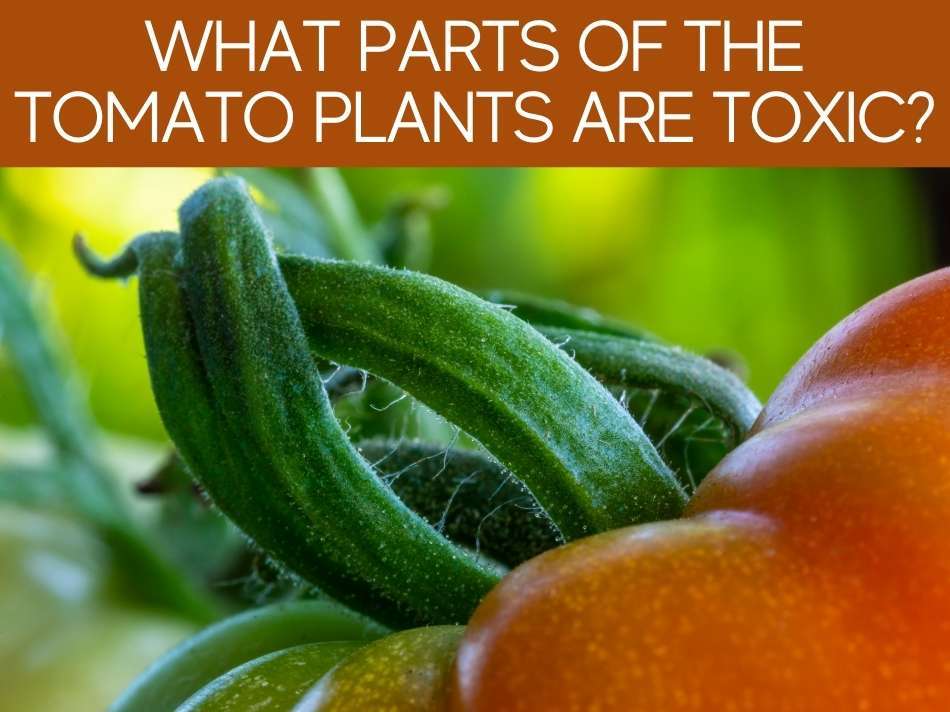
Though all parts of the tomato plants contain tomatine, the green parts, including the stems, leaves, and unripe tomatoes, contain the highest concentrations of the toxin. The toxin is poisonous to dogs and also to herbivores, but to a lesser extent. Even if it does not prove fatal, you wouldn’t want to find your goats grazing on tomato plants since they are harmful just the same.
Besides being unhealthy for goats, tomato plants are also toxic to rabbits.
Can Goats Eat Tomato Vines?
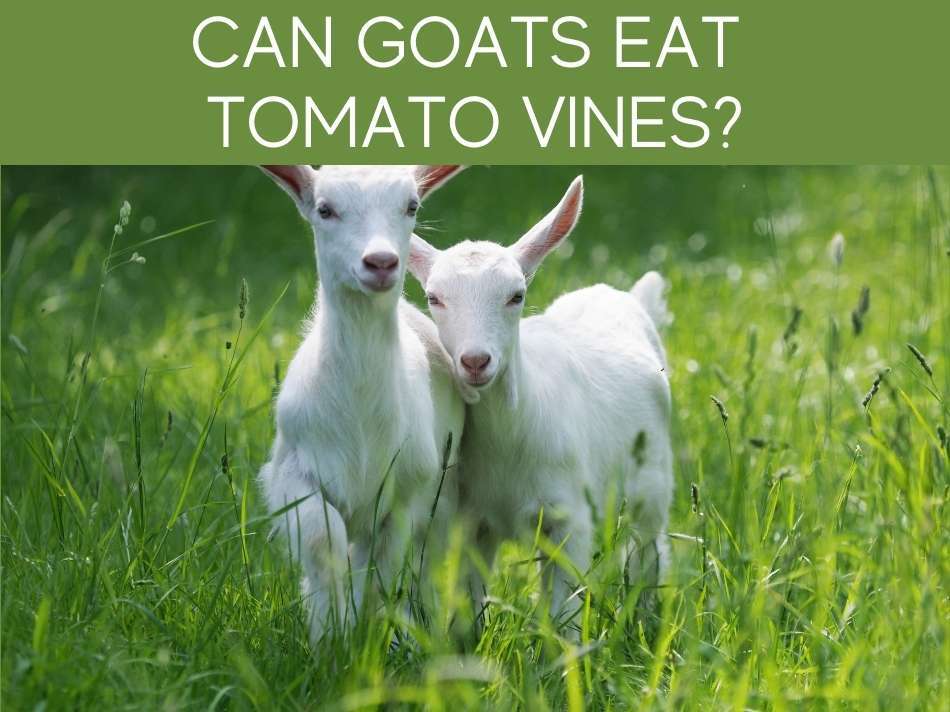
Goats are curious little creatures, which is adorable in most cases unless it threatens the animal’s wellbeing. Consider them as carefree, ignorant babies. They wouldn’t know where to go, what to munch on, and what not to. As their caretakers, it’s your responsibility to keep them out of trouble. So if you find any of your goats feeding on tomato vines, it should be enough to set off the red alert.
Goats eating your tomato vines is a big no-no. It won’t just destroy the tomato crop but may also cause serious health issues for the goats too. The toxic alkaloid that the parts of these plants contain has a tendency to interfere with cholinergic nerves in the goat’s body and cause severe gastrointestinal distress.
What Are The Symptoms?
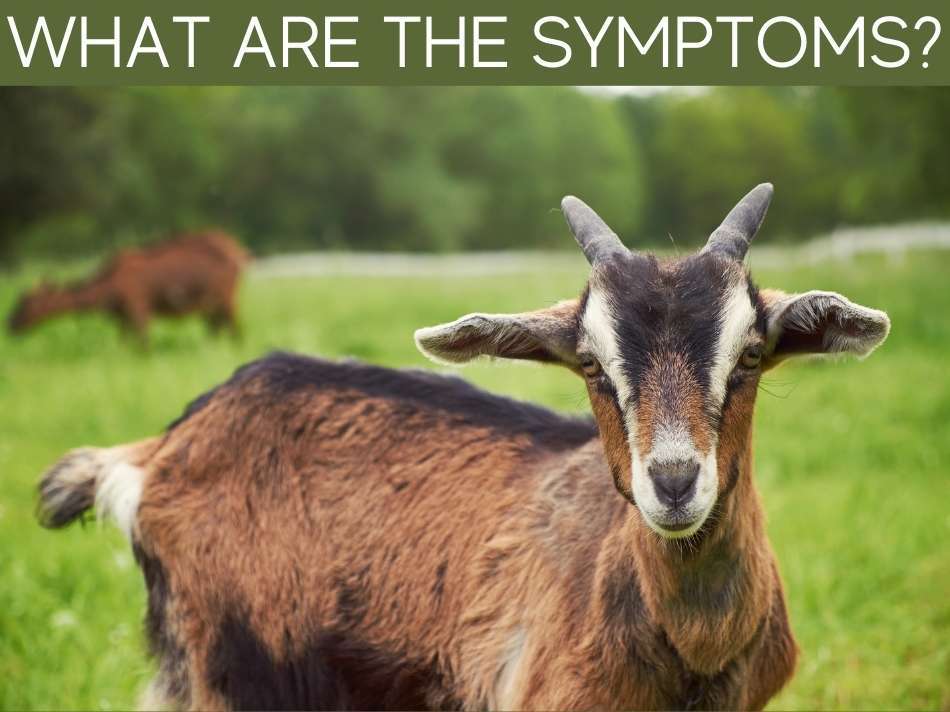
So you know that goats munching away the tomato vines means trouble, but how do you know if your goats have actually had this toxic meal before it turns into anything serious? Other than the nicked branches and the wounded plant, that should be enough to give away the mischief, are there any symptoms of tomato poisoning in the animal itself?
Always keep a close watch on your goats and observe their behavior closely. If you know how your animal behaves normally, in good health, it should be easy to spot a problem if you notice any personality changes.
Here are some specific symptoms you may find if your goats have high concentrations of toxic alkaloid in their system:
● Higher body temperature
● Sight Problems
● Disorientation
● Vomiting, in some cases
● Trouble breathing or panting
● Diarrhea
● Seizure
● Coma
● Death, rarely
However, do keep in mind that poisoning is only caused if tomato vines are ingested in abnormally large quantities. Certain vegetable and sheep farms in California have known to feed tomato vines to sheep as a cheap forage and just made their peace with diarrhea that came along. The point is not that you should feed your goats with tomato plants. It’s only to let you know that there weren’t any adverse reactions. Regular and heavy feeding on tomato vines may cause harmful consequences, so the risk is still not off the table.
How To Respond To Toxicity Symptoms
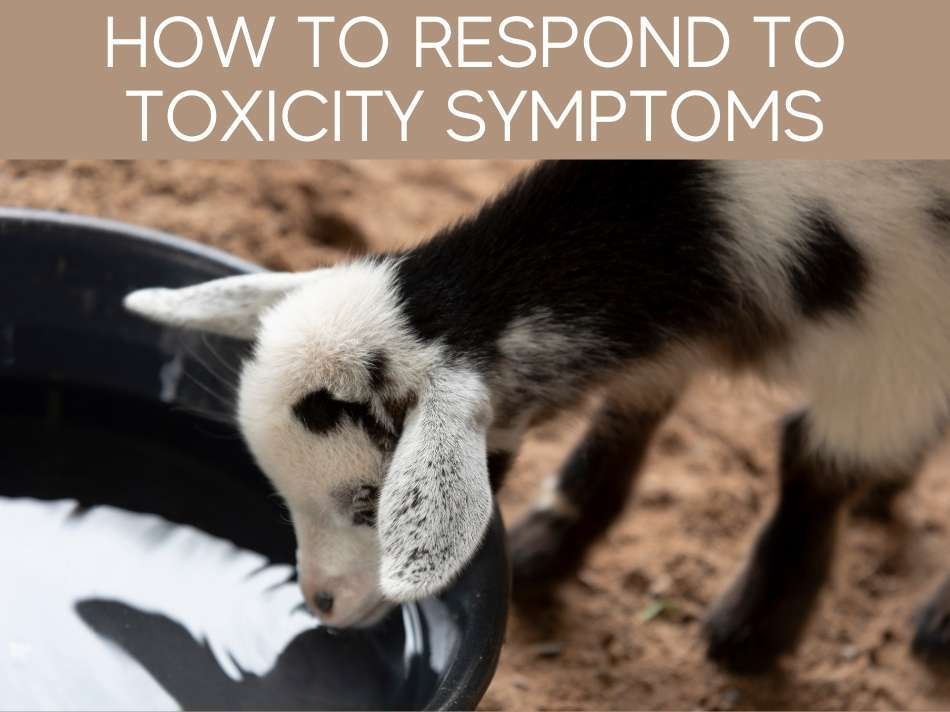
So what should you do if you notice any of the toxicity symptoms? The first thing you should do is call the vet. Besides the expert advice you will receive from a vet, here are some things you can try at home:
● Force open the goat’s mouth and remove any remains of the toxic plant.
● Offer it clean water and change the water each time the goat vomits.
● Take it to a peaceful, dry corner to help it rest.
● Offer a teaspoon of baking soda every hour or so to dilute the poison.
Can Goats Eat Tomato Leaves?
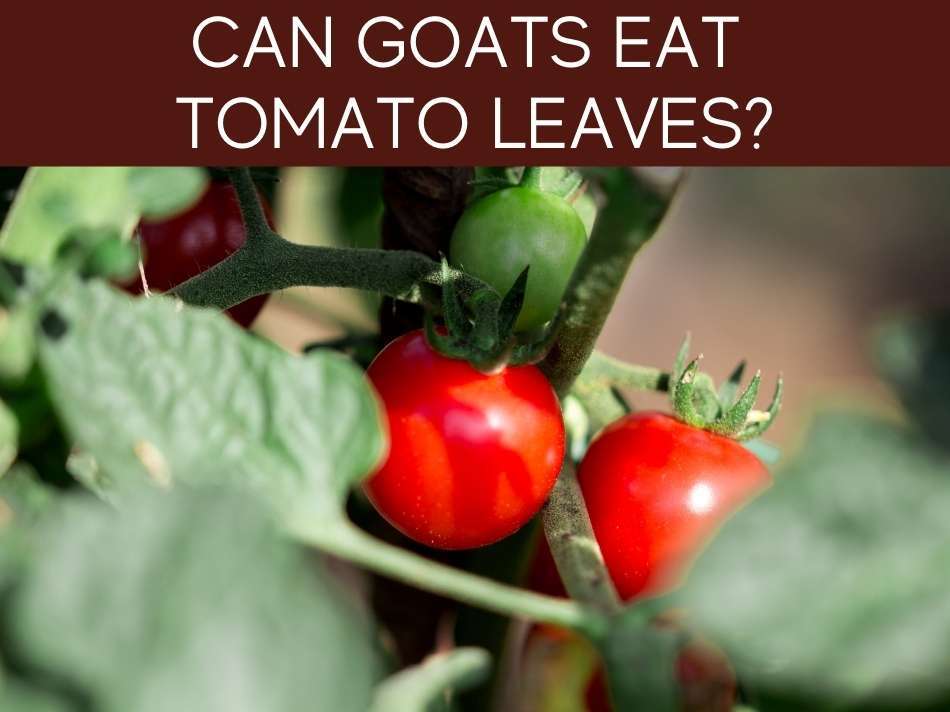
Leaves and stems, together with all the rest of the green parts of tomato vines are toxic to goats, as already highlighted. So, no, you shouldn’t be feeding tomato leaves to your goats.
Thankfully, they’re not too appetizing either, so in most cases, your goats won’t be too inclined to nibble on the leaves on their own. The pungent smell that the leaves give off, along with the prickly hair on the surface, is enough to keep most animals away.
However, you can’t always trust a goat’s opinion, particularly that of a baby goat. You wouldn’t know when they make up their mind to try out something new and go for the tomato vines. However, even if they do, it’s the red, juicy tomatoes that they’ll most likely be lured to, which are safe, by the way.
If the goats do nibble on a leaf or two, that’s ok too. Though they contain tomatine, a toxin, a goat will have to eat large amounts of leaves and stems to cause poisoning.
How To Protect Goats From Feeding On Tomato Leaves?
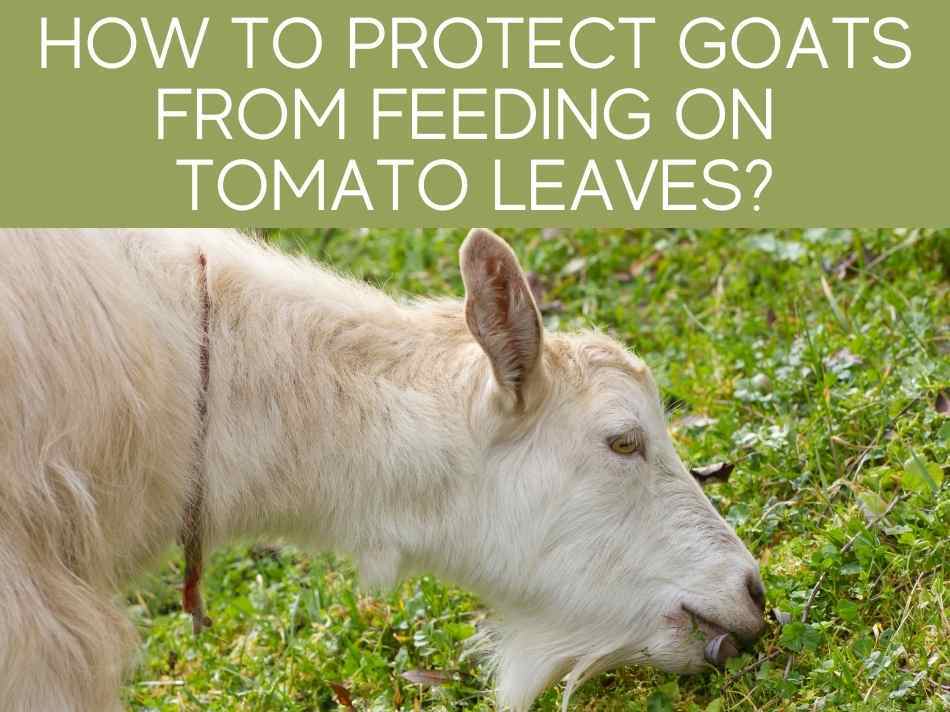
Here are some of the things you can try to keep your goats from feeding on the leaves and other parts of the tomato plants:
● Grow tomatoes in greenhouses
● Install tall fences around your vegetable garden
● Make sure there’s enough forage and safe plants to keep them well-fed
● Keep your goats inside a fenced area with enough grass to graze on
Maybe the easiest way to protect tomato plants from goats is if you use a greenhouse–and we’ve got a complete article on exactly how to grow tomatoes in a greenhouse.
Can Goats Eat Tomato Fruit?
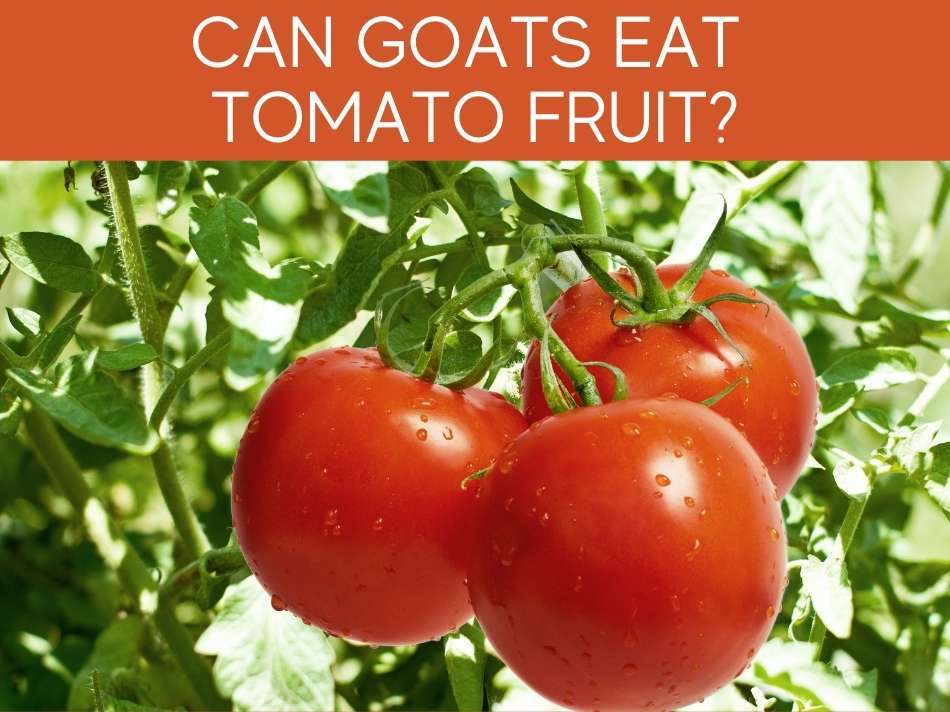
So it’s decided – tomato plants aren’t safe for your goats. But what about the fruit itself? Can goats eat tomatoes?
As for the unripe, green tomatoes, you should know that they contain high concentrations of tomatine and shouldn’t be fed to goats. They’re equally unsafe for any other pets and yourself too. However, the story is entirely different for red, completely ripe tomatoes. When fed in moderation, ripe tomatoes are safe for your goats.
How Much Is Safe?
Feeding the goats too many tomatoes in a single sitting can cause diarrhea, but offering them in food amounts every once in a while is alright. Tomatoes are best offered as a treat rather than a regular part of their diet. The best approach is to offer variety in their diet. Instead of feeding them a particular ingredient constantly, offer new things so they receive all kinds of nutrients in suitable amounts and can stay happy and healthy.
Tomatoes are loaded with nutrients, including Vitamin C and K, and have high water content. They’re healthy for your animals, just like they are for you. Most goats are fond of red, juicy tomatoes, while some completely avoid it. It really depends on the goat themselves.
Level Of Toxicity In Different Parts Of The Tomato Plants
The ripening process of the fruit dilutes the concentrations of tomatine in the fruit. Among the parts of the tomato plant, ripe fruit contains the least amount of toxin. In fact, the toxin is so low in ripe tomatoes that it will rarely cause any side effects. However, unripe tomatoes are more toxic than the leaves of the tomato plant. Leaves, in turn, are more toxic than the stems and roots.
Conclusion
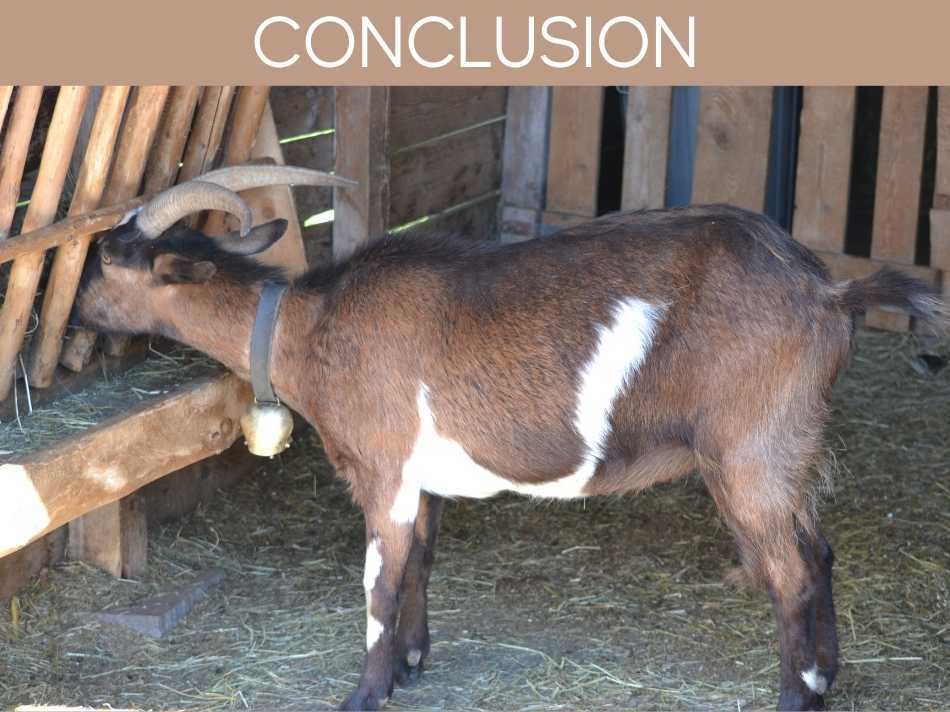
Goats are adorable pets, and as a homesteader, you’ll always want what’s best for their wellbeing. Encourage a healthy diet by offering a diverse range of nutritious meals. However, everything is best in moderation. Even the healthiest of food can be risky if consumed in large doses, let alone tomatoes.
Avoid growing tomato plants where they can easily be accessible to goats. You wouldn’t want to find them swallowing what could have been a perfect harvest. Even more so, you wouldn’t want to see the goats come to any harm. Keep your goats and tomato plants away from one another to ensure the health of both!
